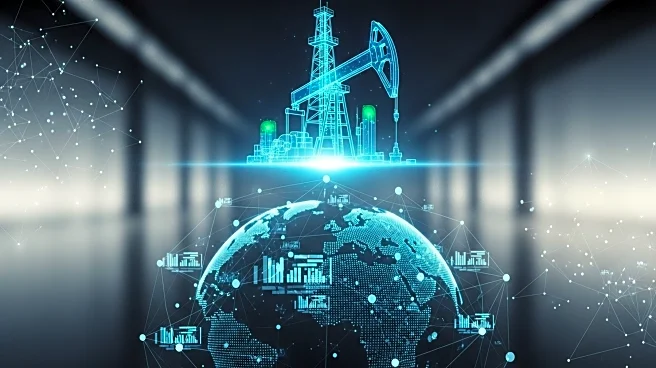What's Happening?
The oil and gas industry is facing significant challenges as it strives to modernize and decarbonize operations. A major obstacle is the 'digital delta,' a gap between physical reality and digital records, which hampers decision-making and operational efficiency. AI technology is being leveraged to bridge this gap by creating a 'Shared Reality,' a digital environment that integrates 3D reality capture with technical documentation and equipment lists. This approach allows for real-time updates and collaboration across teams, providing a single source of truth for engineers, maintenance crews, operators, and contractors. The AI system uses object recognition to automatically detect assets in 3D scans and contextual linking to connect these assets with their technical information, creating a dynamic, living model of the site.
Why It's Important?
The integration of AI into oil and gas operations is crucial for the industry's transition towards sustainability. By addressing the digital delta, AI enhances operational safety, efficiency, and environmental responsibility. This technology reduces the risk of unplanned downtime and improves compliance with environmental regulations. The ability to maintain up-to-date digital records ensures that all stakeholders have access to accurate information, facilitating better decision-making and strategic planning. As the industry faces pressure to reduce methane emissions and minimize environmental impact, AI provides a scalable solution that supports these goals while optimizing legacy infrastructure.
What's Next?
The adoption of AI-driven Shared Reality is expected to accelerate the modernization of oil and gas operations. As more companies implement this technology, there will likely be increased collaboration between operators, engineers, and contractors, leading to more efficient and sustainable practices. The industry may see a shift towards more integrated digital solutions, reducing data silos and enhancing visibility over field assets. Continued advancements in AI technology could further streamline operations and support the industry's decarbonization efforts.
Beyond the Headlines
The use of AI in oil and gas operations raises important ethical and legal considerations, particularly regarding data privacy and security. As AI systems become more integrated into industrial processes, companies must ensure that sensitive information is protected and that AI-driven decisions are transparent and accountable. Additionally, the shift towards AI-driven operations may impact workforce dynamics, requiring new skills and training for employees to effectively collaborate with AI systems.










